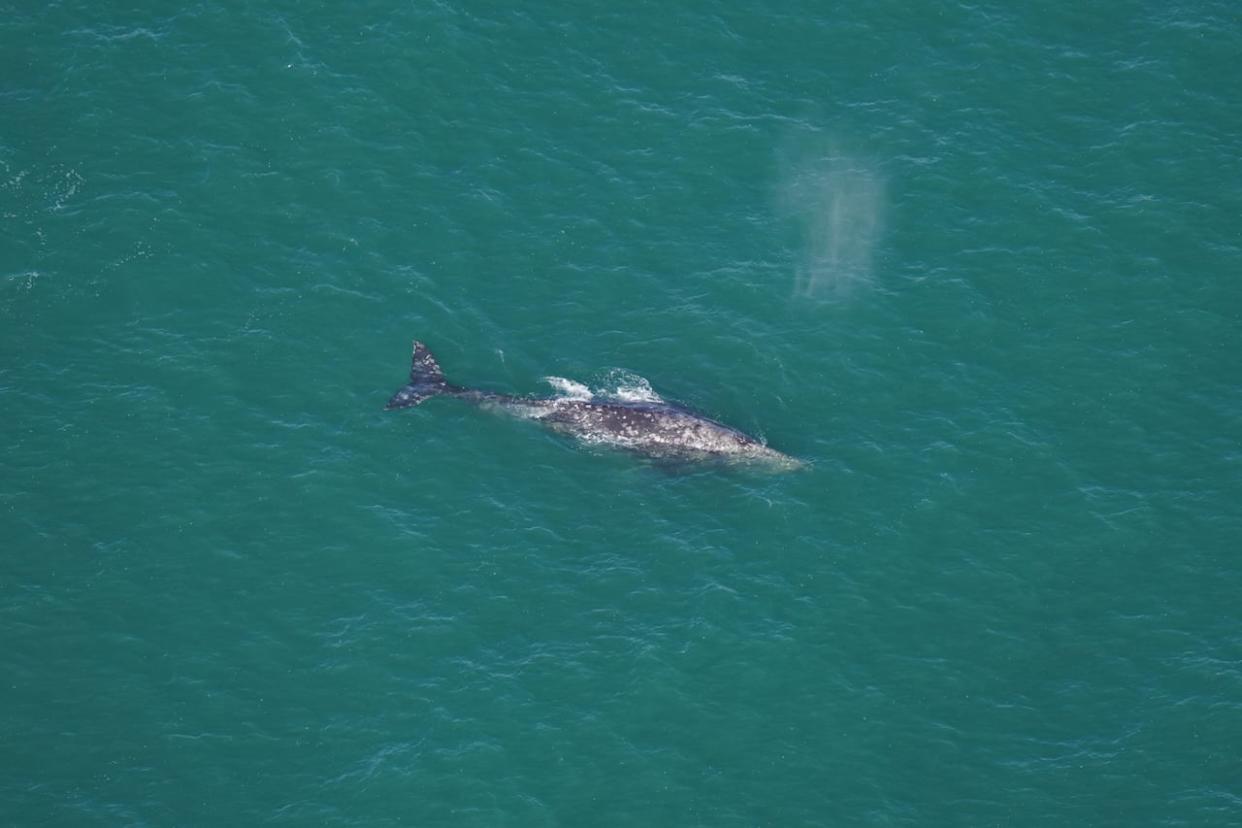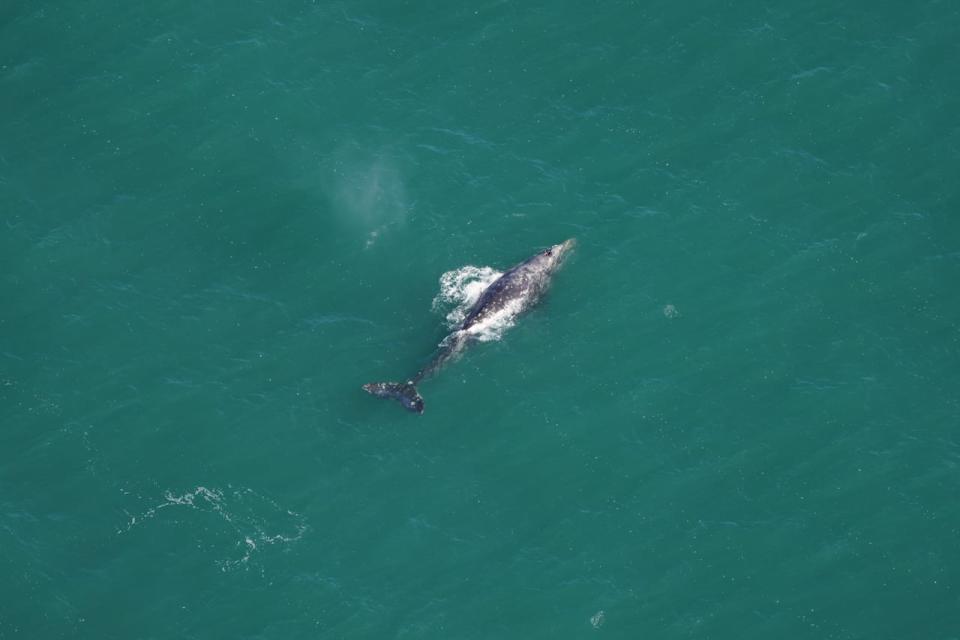Grey whale spotted in Atlantic Ocean, despite being extinct there for 300 years

When scientist Orla O'Brien and a colleague were doing an aerial survey off the coast of Nantucket, Mass., they were looking for right whales, fin whales and humpbacks.
But when she set her sights on one whale in the waters below, the details didn't quite add up for the scientist from Boston's New England Aquarium.
There was no dorsal fin, which suggests a right whale, but the skin was too different to be that species.
"And the next time it came up and we got better photos of the head and the whole body. It was hard to believe," O'Brien said in an interview with CBC Radio's Shift.
She was looking at a grey whale.
O'Brien turned to her colleague, Kate Laemmle, and said, "I don't even want to say what I think this is out loud because I don't think you're going to believe me."

Orla O'Brien was one of two scientists from the New England Aquarium who spotted the grey whale from their research plane. (Submitted by the New England Aquarium)
Laemmle looked at the photo and mouthed "grey whale."
"And so we were both after that kind of just giddy and excited, just because it was such a weird, wild, unique experience." O'Brien said.
The disbelief came from the fact that grey whales have been extinct in the Atlantic Ocean since the 17th century. Normally, they live in the north Pacific.
O'Brien said their extinction in the Atlantic was due to a natural decline as well as the increase in whaling.
The question is how this one ended up there now.
"I think the most likely explanation for where the whale came from is that it came from a Pacific population," O'Brien said.
Climate change likely at play
Grey whales often feed off Alaska in the summer. Historically, the Northwest Passage is blocked with ice, but with climate change, this is less common.
"And so there are passageways that could have kind of opened up that the whale swam through, I would say, probably accidentally, and just kind of found itself in the wrong ocean," O'Brien said.
She said there have been other recent sightings in the Atlantic in the last 15 years — in the Mediterranean, off Namibia, and recently near Florida, which she thinks might be the same whale she just saw.
O'Brien points back to the Northwest Passage theory, adding that the species often has long migration patterns to begin with.
"And so it might not be so unusual for the whale to be swimming for so long. You know, they're kind of used to it."
O'Brien said it's unlikely we would see grey whales returning to the Atlantic permanently in the near future.
"Those sorts of things happen, you know, on a more geologic time scale, hundreds and hundreds of years," O'Brien said.

O'Brien suspects that the grey whale travelled through the Northwest Passage in the Arctic to reach the Atlantic Ocean. (Submitted by the New England Aquarium)
"And so for a population to establish, you'd need many, many more whales than just one or two."
O'Brien called it a once-in-a-lifetime experience to see the whale out the window of the plane.
"But on the other hand, it is kind of this tangible reminder of how things are changing globally and what that means for animals in the ocean ... that this whale can just turn up completely out of the blue in another ocean."

